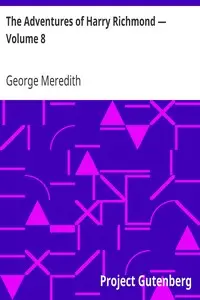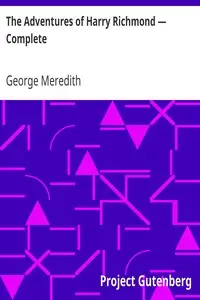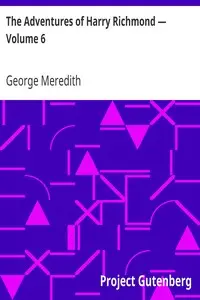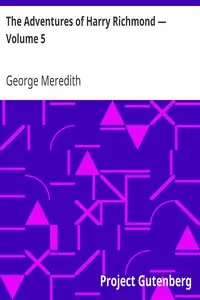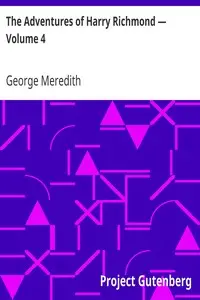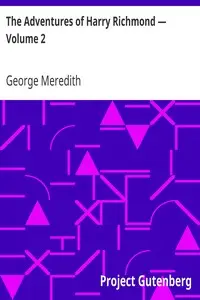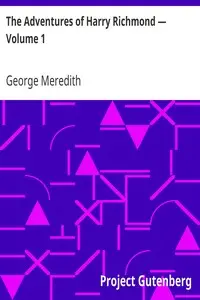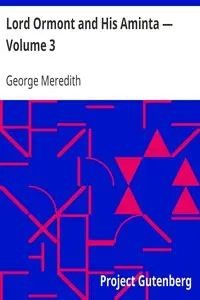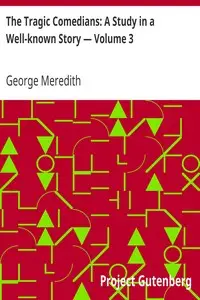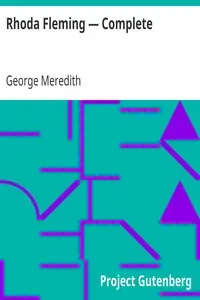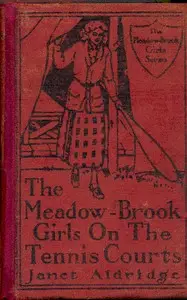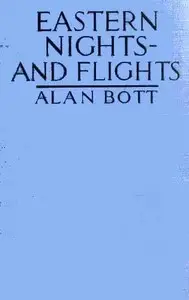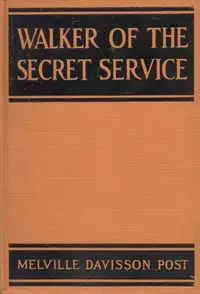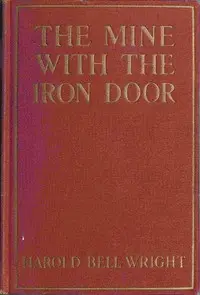"The Adventures of Harry Richmond — Volume 7" by George Meredith is a continuation of Harry Richmond's life where he faces challenges involving relationships and self-discovery. After a fight with gipsies leaves him injured and under Kiomi’s care, the story looks at the risks attached to stepping outside of your own social class and station. Harry is stuck between his demanding father, the intriguing Princess Ottilia, and Kiomi from the gipsy tribe. Throughout the experiences, the novel considers identity, social standing, and the confusing nature of love, using Harry's experiences to consider honor and the difficulties of youth.
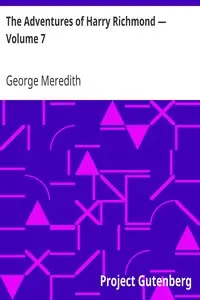
The Adventures of Harry Richmond — Volume 7
By George Meredith
After a savage brawl, a young man finds himself caught between a princess, a gipsy girl, and his father’s outsize expectations for him.
Summary
About the AuthorGeorge Meredith was an English novelist and poet of the Victorian era. At first, his focus was poetry, influenced by John Keats among others, but Meredith gradually established a reputation as a novelist. The Ordeal of Richard Feverel (1859) briefly scandalised Victorian literary circles. Of his later novels, the most enduring is The Egoist (1879), though in his lifetime his greatest success was Diana of the Crossways (1885). His novels were innovative in their attention to characters' psychology, and also portrayed social change. His style, in both poetry and prose, was noted for its syntactic complexity; Oscar Wilde likened it to "chaos illumined by brilliant flashes of lightning". Meredith was an encourager of other novelists, as well as an influence on them; among those to benefit were Robert Louis Stevenson and George Gissing. Meredith was nominated for the Nobel Prize in Literature seven times.
George Meredith was an English novelist and poet of the Victorian era. At first, his focus was poetry, influenced by John Keats among others, but Meredith gradually established a reputation as a novelist. The Ordeal of Richard Feverel (1859) briefly scandalised Victorian literary circles. Of his later novels, the most enduring is The Egoist (1879), though in his lifetime his greatest success was Diana of the Crossways (1885). His novels were innovative in their attention to characters' psychology, and also portrayed social change. His style, in both poetry and prose, was noted for its syntactic complexity; Oscar Wilde likened it to "chaos illumined by brilliant flashes of lightning". Meredith was an encourager of other novelists, as well as an influence on them; among those to benefit were Robert Louis Stevenson and George Gissing. Meredith was nominated for the Nobel Prize in Literature seven times.

